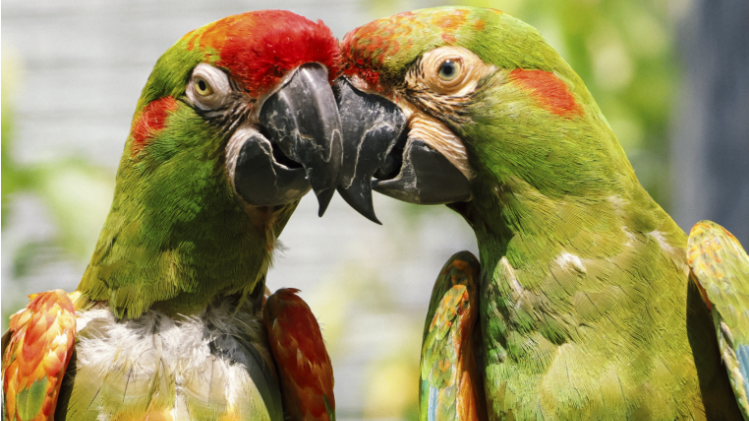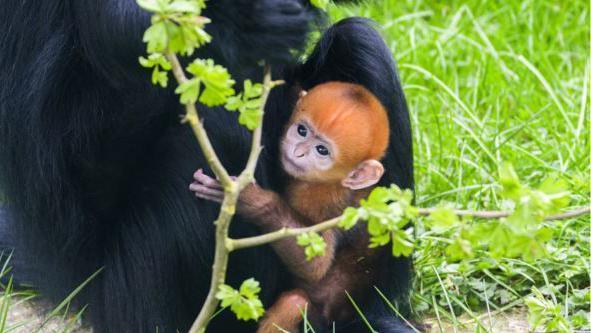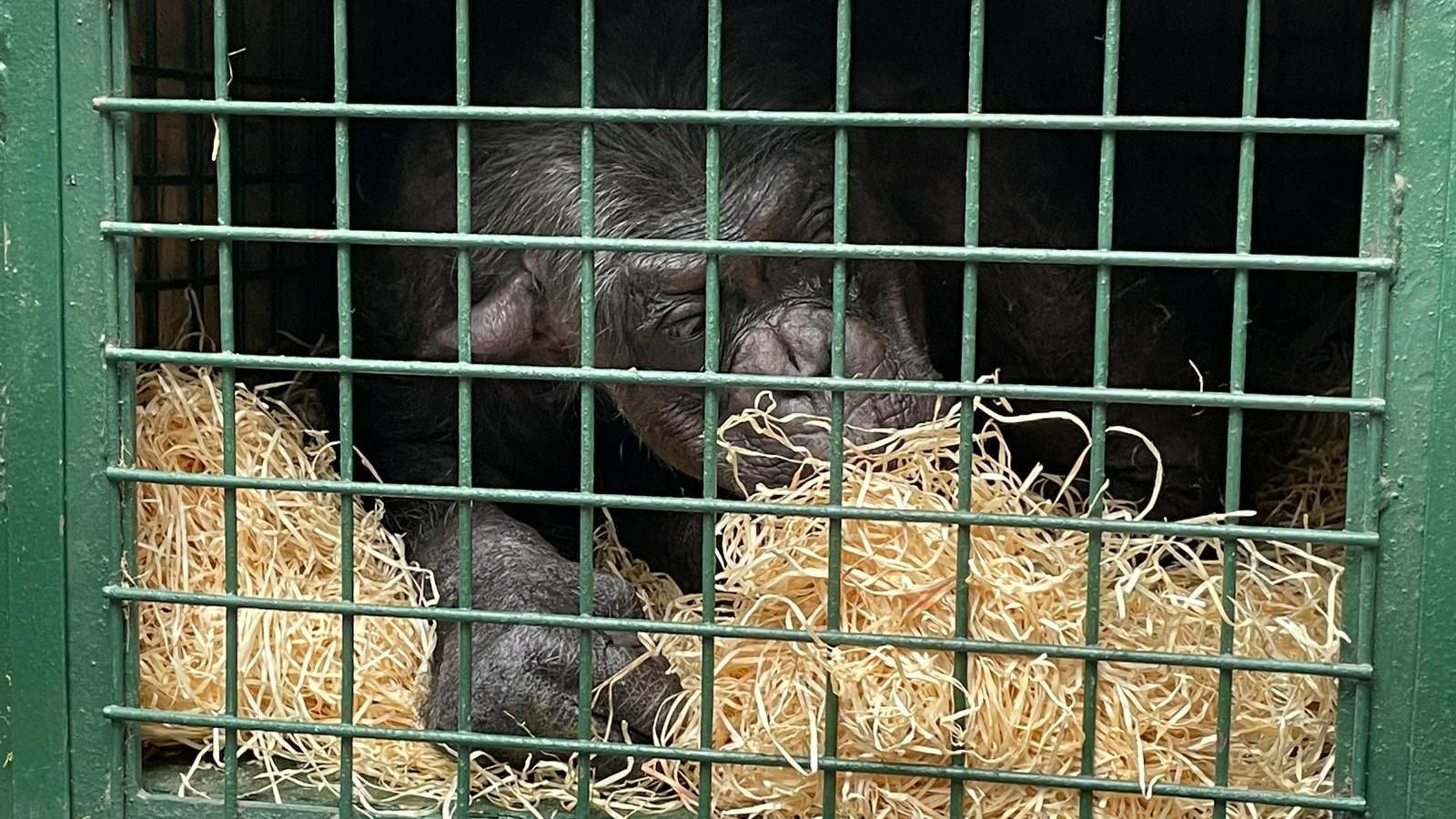Endangered parrots brought to zoo to fall in love

Red-fronted macaws have a bright red forehead of feathers and long blue-green tail
- Published
Two parrots from a "critically endangered" species have been moved to a zoo in the hope they will fall in love.
The two red-fronted macaws have arrived at Twycross Zoo in Little Orton, near the Warwickshire and Leicestershire border, as part of a preservation programme.
Bosses at Twycross said the pair have been brought to the zoo in the hope that they will breed down the line in an "important step to save the species".
The International Union for Conservation of Nature (IUCN) Red List has the red-fronted macaws as "critically endangered".
Native to Bolivia, the species' global population is declining, leaving less than 300 in the wild, the zoo said.
Dr Rebecca Biddle, director of conservation, spoke of her pride that the zoo was "leading the way for the conservation of this incredibly important species".
She added: “Red-fronted macaws are among the most endangered species of parrot on the planet, so bringing this pair to Twycross to hopefully facilitate breeding further down the line, is a necessary and important step to save this species.”
The birds were moved from Edinburgh Zoo and Welsh Mountain Zoo.
Assistant bird curator at Twycross, Rhys McKie, previously worked at Edinburgh Zoo and was among the team that was there when the male macaw hatched.
Mr McKie said: “It’s always an exciting day when a new animal arrives at the zoo, but being reunited was a really special moment.
“When he hatched last year, it was the first time in over 15 years that the species had been successfully bred at the zoo.
"So, to now give him a home at Twycross Zoo where he will continue the conservation journey and hopefully breed more of this rare species, is very momentous for me."
He said wild members of the species can only be found in a "small semi-desert, mountainous" region of Bolivia, which make them "unique amongst macaws".
Follow BBC Leicester on Facebook, external, on X, external, or on Instagram, external. Send your story ideas to eastmidsnews@bbc.co.uk, external or via WhatsApp, external on 0808 100 2210.
Related topics
- Published30 March 2024

- Published29 February 2024
